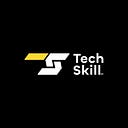
Leveraging AI and Automation for Startup Growth: Insights from Timilehin Makinde
In today’s hyper-competitive startup landscape, artificial intelligence (AI) and automation are no longer optional — they’re essential. From streamlining operations to enhancing customer experiences, AI helps founders overcome resource constraints and scale faster. Timilehin Makinde, a business automation expert and lead strategist at Grange Labs, has been pivotal in guiding startups to embed AI-driven strategies into their core business models.
Why AI and Automation Matter
According to a Harvard Business Review article titled “The New Wave of AI-Powered Startups”, companies that leverage AI can reduce operational costs by up to 30% while simultaneously speeding up product cycles [1]. This is a significant advantage for early-stage businesses that often operate on tight budgets and quick turnaround times.
“Startups don’t fail because they lack great ideas — they fail because they can’t scale fast enough. Automation bridges that gap by allowing founders to focus on innovation.”
— Timilehin Makinde, Grange Labs
McKinsey & Company also found that AI adoption improved decision-making speed by nearly 50% in organizations that successfully implemented data-driven processes, outpacing competitors that rely on manual analysis [2].
Key Areas to Leverage AI and Automation

- Marketing and Customer Acquisition
- Chatbots & Conversational AI: According to Gartner, chatbots can handle up to 80% of routine inquiries in customer service contexts, enabling startups to reallocate manpower to more strategic tasks [3].
- AI-Generated Content: Tools like Jasper and Copy.ai automate the creation of engaging blog posts, social media updates, and ad copy. Forbes reports that AI-generated copy can increase content output by up to 5x, giving smaller teams a massive productivity boost [4].
- Personalized Campaigns: Salesforce research shows that personalization can increase customer engagement by 40%, leading to higher click-through and conversion rates [5].
2. Workflow Automation & Productivity
- CRM & Sales Automation: Platforms like HubSpot and Salesforce use AI to track leads, manage follow-ups, and analyze customer interactions, saving hundreds of hours per quarter.
- Project Management Tools: AI-powered features in tools like Asana and Notion automate task assignments and scheduling, reducing time spent on manual coordination.
- Finance & Accounting: Solutions like QuickBooks and Xero integrate AI to automate invoicing, expense tracking, and even cash-flow forecasting.
3. AI-Powered Product Development
- AI in Software Development: Platforms like GitHub Copilot provide real-time code suggestions, improving developer productivity by 20–40% for certain tasks, as noted in a Microsoft research paper [6].
- Predictive Analytics: By analyzing user feedback and market trends, AI tools can pinpoint emerging opportunities and guide product strategy.
- Rapid Prototyping & Testing: Simulation platforms powered by AI enable startups to test features in virtual environments, accelerating the feedback loop.
4. Customer Support & Retention
- Automated Help Desks: AI chatbots handle common queries, freeing human agents to focus on complex issues. Deloitte Insights found that companies using AI for customer support improved retention by 25% [7
- Sentiment Analysis: Natural Language Processing (NLP) tools track brand sentiment across social media and reviews, allowing founders to tackle negative perceptions early.
- Predictive Support: Data-driven models identify churn risks, trigger proactive outreach, and keep customers engaged longer.
The Competitive Edge of AI
From Elon Musk noting that “AI is more dangerous than nukes” (albeit in a different context) to Satya Nadella calling it the “defining technology of our times,” the underlying message is clear: AI is shaping the future across all industries. For startups, this is an unprecedented opportunity to level the playing field against larger incumbents.
CB Insights highlights that AI-based startups are highly attractive to venture capitalists, often receiving larger investments than their non-AI counterparts [8]. By integrating automation early, founders enhance their operational efficiency and boost investor confidence in their scalability.
Timilehin Makinde’s Final Take
“If you’re a founder and you’re not leveraging AI, you’re already falling behind. The good news? It’s never too late to start.”

Timilehin’s experience at Grange Labs underscores how essential AI and automation are for modern startup survival. By reducing mundane tasks, providing actionable insights, and enhancing user experiences, AI allows founders to double down on creativity and strategic growth.
References
- Harvard Business Review. “The New Wave of AI-Powered Startups.” 2021.
- McKinsey & Company. “The State of AI in 2022.” 2022.
- Gartner. “Customer Service Chatbots: Best Practices and Adoption Strategies.” 2021.
- Forbes. “How AI-Generated Content is Transforming Marketing.” 2022.
- Salesforce. “State of Marketing Report.” 2022.
- Microsoft Research Paper. “Evaluating AI Pair Programming Tools.” 2021.
- Deloitte Insights. “How AI Improves Customer Retention.” 2022.
CB Insights. “AI Trends Report.” 2023
